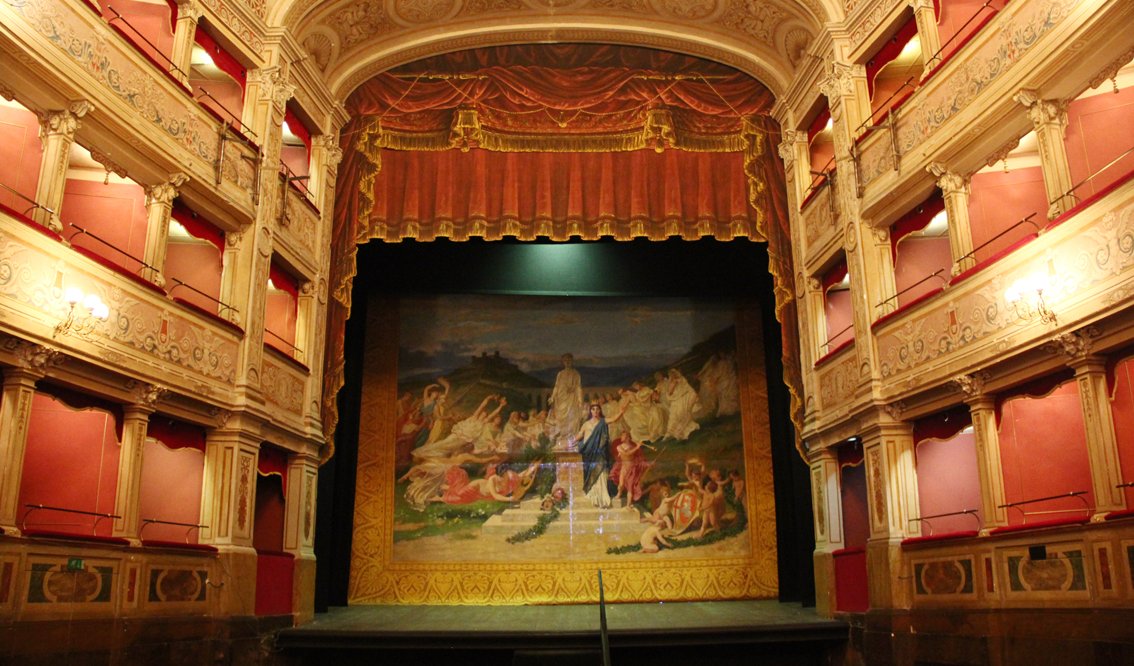
Program
Featuring
Other information
The event is about 2.5 hours long.
About the event
Artists respond to their environment. This environment may be the natural world around us; the short life of a firefly, the harmful effects of chemicals on plants or the invisible but omnipresent wind, but it may also be the development of a human relationship and thus of inner feelings. In this concert in Spoleto, the Budapest Festival Orchestra will present a selection of works by four contemporary composers who give voice to their thoughts in very different but incredibly sensitive and exciting ways. Cohen's fusion of avant-garde, rock and Arabic melodies opens the program, followed by Prestini's work with its important message of environmental protection; then comes Takemitsu's free, flowing nature music followed by Menotti's poignant song cycle.
In Gilad Cohen's Firefly Elegy, written for clarinet, string trio, and harp, the main theme undergoes many transformations, just as the firefly goes through many stages in its life. After a brief fanfare, the faintly glowing, motionless eggs are expressed in static, calm music followed by a groovy, sometimes aggressive sound that depicts the larvae hunting insects. The pupated larva is then introduced by endless chords of strings and finally concludes with an elegy, in which the firefly contemplates the meaning of its life.
Paola Prestini pays tribute to the world-renowned ecologist and writer Rachel Carson's seminal work, Silent Spring, and especially its message and impact, with her piece Thrush Song. The book has fundamentally changed the way humanity approaches the environment. Prestini interprets Carson's words from a tape recorder and by a soprano mixed together, while an ensemble of string trio and percussionists depicts the thrushes, whose song Carson could only listen to with a clear conscience after writing her book.
The Japanese composer Toru Takemitsu evokes Debussy in the set-up (flute, viola, harp) of And then I knew 'twas Wind. The composer wanted to draw a parallel between the visible traces of the invisible wind and the similar work of the soul in human consciousness, for which he chose a line from Emily Dickinson's poem Like Rain it sounded till it curved. Dreamlike music, a play of sound and silence, delicate timbres and unusual harp techniques characterize the work.
Gian Carlo Menotti, famous for his opera The Telephone, had been commissioned by the legendary singer Elisabeth Schwarzkopf to write the song cycle Canti della lontananza (Songs of Remoteness). The composer drew inspiration from his failing relationship with Samuel Barber to create seven songs that sing of the pain of loss and separation: The unresolved raw emotions of Gli amanti impossibili (Impossible Lovers), the oscillation between nostalgia and loss of Mattinata di neve (Snowy Morning), the lightness of Il settimo bicchiere di vino (The Seventh Glass of Wine), the eerie sonorities of Lo spettro (The Ghost), the childlike nature of Dorme Pegaso (Sleeping Pegasus), the operatic rhetoric of La lettera (The Letter) and the wistful singing of Rassegnazione (Resignation).